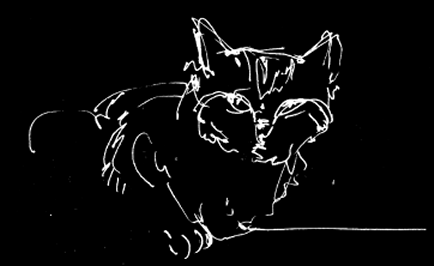- What is the relevance of history, and the identifications of patterns to helping the individual differentiate from their family of origin, but yet retain the cultural and familial heritage?
- How does existentialism and/or phenomenology impact the development of the authentic self - breaking away from the patterns instilled by early childhood experiences?
- Metanarratives - as the story we are doomed to repeat?
Berger’s description of childhood:
“One of the most widespread adult illusions is the belief in second chances. Children, until they are otherwise persuaded or bribed by adults, know that they do not exist” Berger, J. and Mohr, J. (1967) A Fortunate Man.
The reference to “The Mirror” in the title refers to Lacan’s ideas around the development of an individuated self:
1. NEED: The baby as a polymorphous blob, does not recognize the distinction between itself and the objects that meet its needs.
LOSS: the state of nature which defines NEED has to be broken up. The infant must separate from his/her mother, form a separate identity in order to enter civilization. The child experiences this as loss – losing that primal sense of security as he/she becomes aware of others.
The REAL gives way to the SYMBOLIC when the child develops language to describe the experience of loss. (18 months)
2. DEMANDS: Not only to demand the objects that are lost but also the demand for recognition by another, for love from another. The child is aware of their separateness from the mother – and that there are things that are not part of him/her – this creating the experience of OTHER. But the baby still has no real notion of self. The baby demands to return to the world of the real – non-separateness, unity with mother, and because this is impossible the child experiences and existential anxiety of loss.
3. DESIRE: The MIRROR STAGE The child will perceive themselves as in a mirror. He/she will look at this image and then look at a real person ( as a baby the mother ) and then back at themselves.
In the process of comparison and mirror the child – or adult – will start to develop a sense of being an integrated being , a whole person. A self!
The person will develop behavioral and emotional patterns based on the image that he or she sees in the mirror and the patterns that he or she sees manifested in the people around – family.
The issue here is that the person needs to break this mirror in order to establish an authentic self, which makes choices for his or her self instead of repeating the patterns over and over again.
Jaques Lacan: The Mirror Stage as Formative of the function of the I as Revealed in Psychoanalytical Theory (1949), in Ecrits – A Selection, Tavistock Publications, 1977
The incorporation of the development of a person’s sense of self developed in family of origin, how a person's sense of self impacts relationship as adults, (illuminating the repetitious (Freudian sense) patterns that one incorporates another person based on the person’s need templates (Nagi) or self-objects (Kohut) needs that were not fulfilled in the family of origin) and how a therapist may create a environment that allows for the needs to be met in the relationship (transference?) so the person is not doomed to continue to repeat the same patterns with whomever they are with?
METANARRATIVES: stories or myths that have great generalities and represent a final truth or meanings. Thus there can be Metanarratives within the family which are taken as truths or myth ( as in the story we live by ) that can continue dysfunctionally until the individual challenges them in the push for individuation and fulfilling relationship based on authentic self. (Lyotard)
Lyotard, J.F (1994) Lessons on the Analytic of the Sublime.
Foucault, M. (1980) The History of Sexuality vol 1.

No comments:
Post a Comment